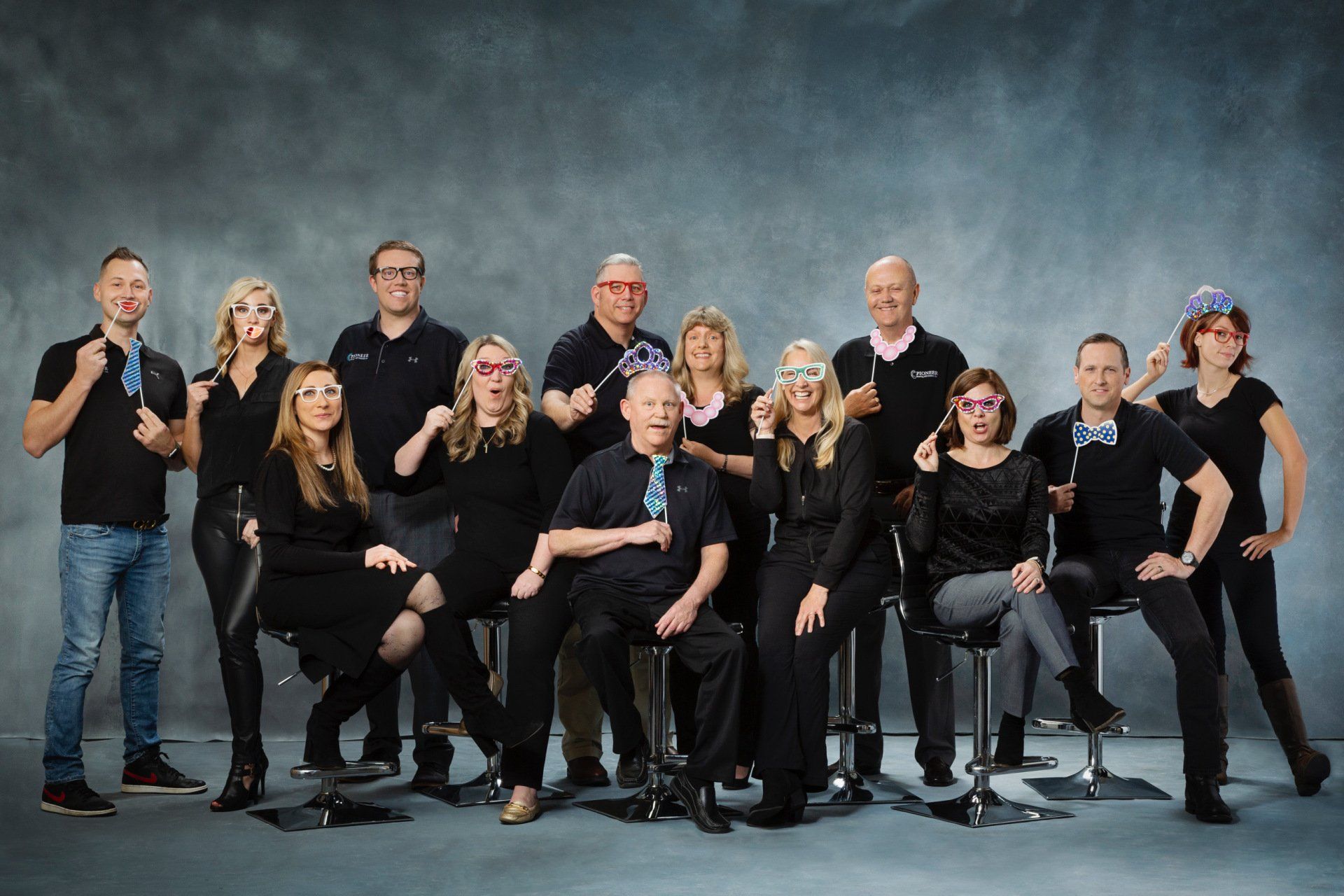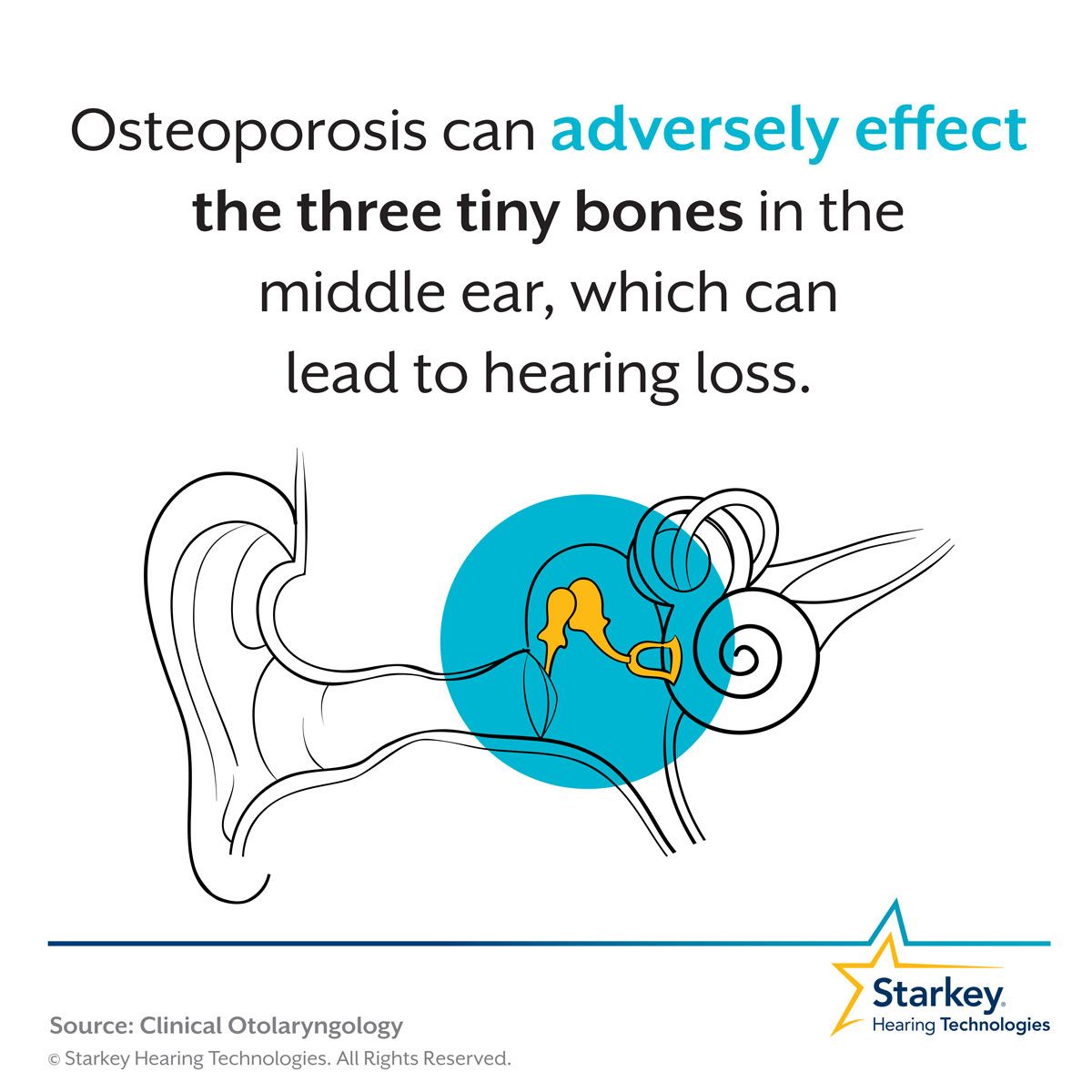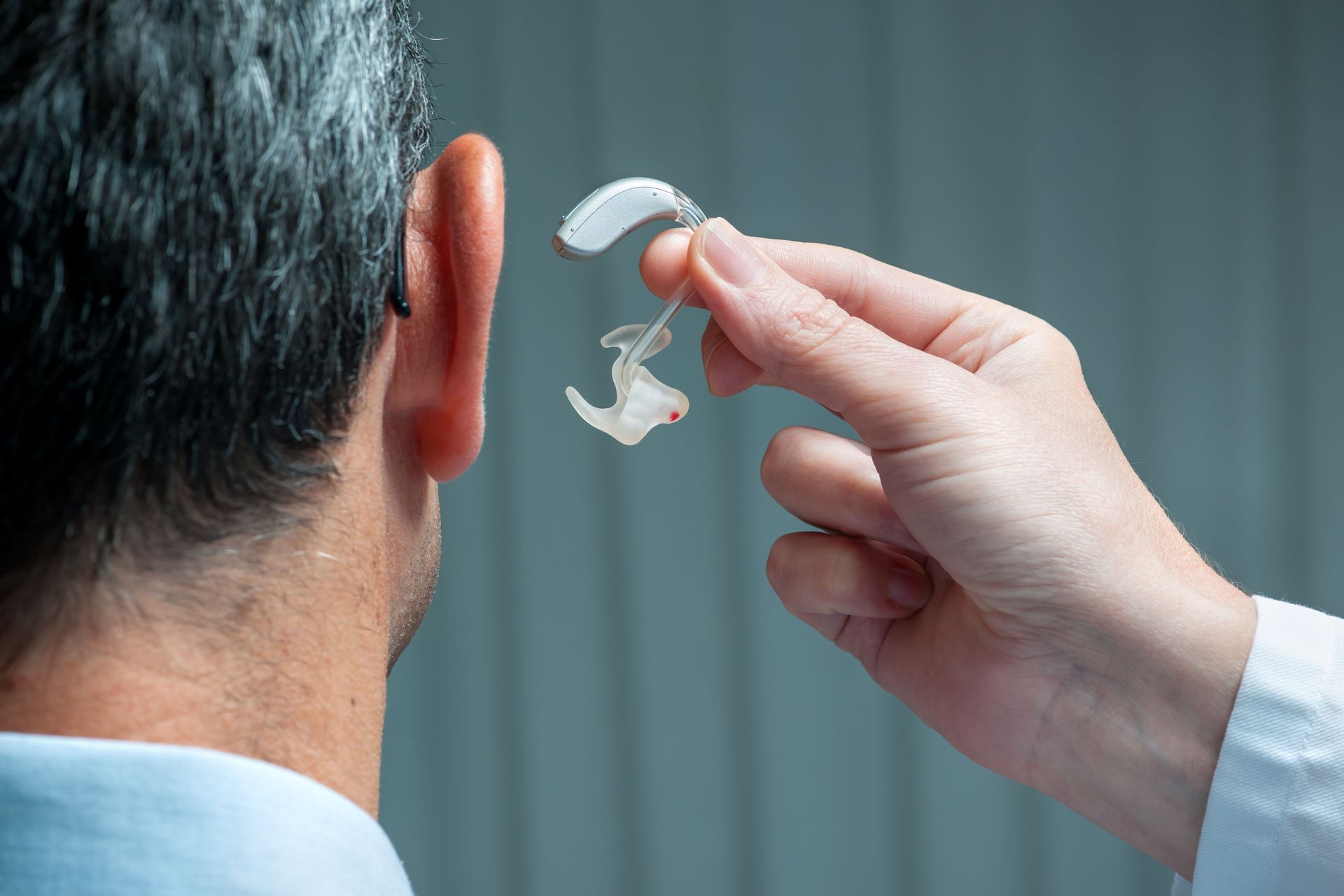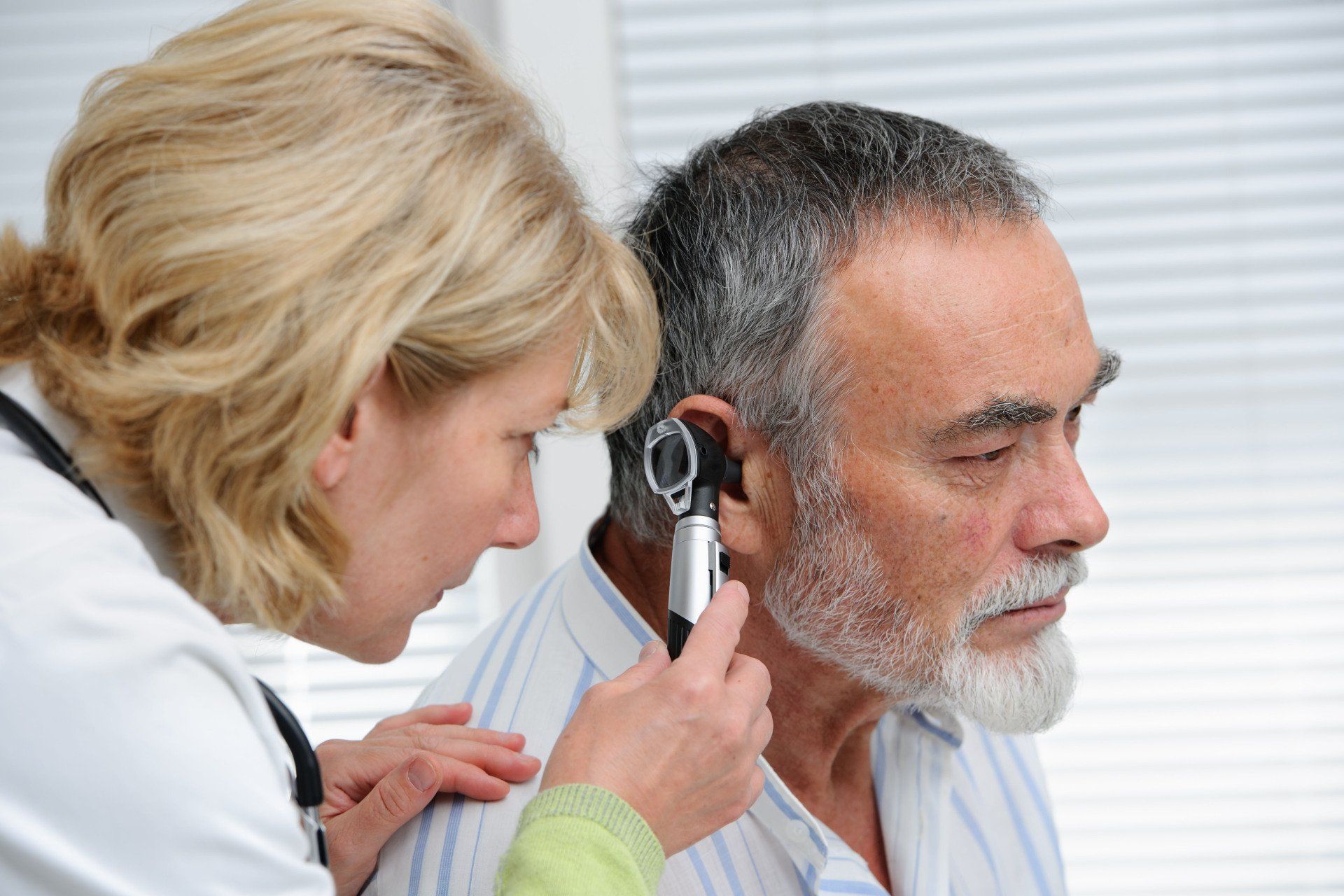Call:
(405) 883-3108
Text: (405) 873-8557
Serving Oklahoma
since 1974
Celebrating 50 Years of Enhancing Lives Through Better Hearing
Providing personalized hearing solutions across Oklahoma, from Norman to Edmond, Oklahoma City, Shawnee, and beyond.
Blog Layout
One Audio Industry Writer's Hearing Aid Experience
Russell Rutledge • February 5, 2024
ONe Audio industry writer's hearing aid experience

Today's blog post is actually a repost of a blog post from Copper magazine, an audio related magazine related to PS Audio in Boulder, Co.
You can find it here: https://www.psaudio.com/blogs/copper/tagged/category_issue-196?view=issues
I recently had a gentleman make an appointment at our office for a hearing evaluation. He said that the reason he was wanting new Widex hearing aids was because he had read a blog post in an online magazine called "Copper". I immediately knew exactly what he was referencing because I know of PS Audio and watch their YouTube videos. I arranged to fit hearing aids on this gentleman and, after he left, I started looking for the article. What a great read! I now understood why he was so motivated. He returned last week and I fit new Widex hearing aids just like the author, Frank Doris'. He's doing very well and very grateful for the article.
It thought it would be great if more people who have questions about hearing impairment could read about Frank's experience. With this in mind, here is the article:
The following is from an article entitled Frankie Goes to Hearing Aids: Staving Off Retirement, Part One
Written by Frank Doris
What’s an audio professional’s biggest fear? Losing their hearing. After all, we depend on it to make sonic evaluations, whether we’re an audiophile, equipment reviewer, front-of-house engineer, component designer or anyone else who relies on their ears to make a living.
According to the National Institute of Deafness and Other Communication Disorders, more than 15 percent of adults age 18 or older report some trouble hearing, and the problem gets more acute with age: about one in three people in the US between 65 and 74 has hearing loss, and nearly half of those older than 75 have difficulty hearing.
Much talk in the high-end audio world is made about having a sonic reference, whether it’s “the absolute sound” of live unamplified music in real space, as Harry Pearson once framed it, or using Steely Dan’s Aja album for setting up a live concert sound system. Well, for each of us, our references are our ears. (I’ll use “ears” here to encompass the ears and brain.)
What happens when you lose that reference?
Here’s one man’s story.
Mine.
Well into my 40s, I knew my hearing was good, even though I had attended some painfully loud rock concerts (when the MC5 played at Stony Brook University on July 3, 1970, I counted 18 Marshall amplifier heads on stage). I’ve also played on some ungodly-loud stages – the sound man for our new wave band the Lines was nicknamed “Decibel Don.” But I could hear the 15.7 kHz whine of the flyback transformer of our old Sony CRT TV from across the room. In fact, I never gave my hearing a second thought, other than noticing some slight ringing in my ears under certain circumstances, but only if I really paid attention.
Fast forward to the 2005 AES Convention in New York. A friend and I were on the exhibit floor and noticed a truck parked on the show floor from an organization that was sponsoring free hearing tests. “I don’t need one; my hearing’s fine,” I told my friend. “C’mon, let’s take the test just for fun,” he replied.
When the audiologist handed me the results I smiled and said, “perfect, right?” She didn’t smile back. “You have some mild hearing loss. I’d be very careful not to do anything to cause further damage.” The results of the test noted that I had some moderate high-frequency loss (in the 3 kHz – 6 kHz range) in my left ear and mild loss in my right ear, and some mild loss of speech intelligibility in my left ear (in the 500 Hz – 3 kHz region) I had just turned 50 and, knock on wood, was in pretty good physical shape, so I had never given the slightest thought to the fact that my hearing might be getting worse. I was rattled but soon shrugged it off.
A few years after that AES convention I went to another audiologist. She said I was borderline for hearing aids but recommended I get them. My audiogram showed the classic notch loss that can happen as people age. I didn’t feel like I needed them, but for the past few years my wife had been complaining that at times I hadn’t been listening to her. (I know, that’s going to prompt some of the oldest jokes in the book.) I thought, well, if I literally haven’t been hearing what my wife has been saying, and if she’s been thinking that I’m not paying attention to her, well, that’s a problem on multiple fronts. I went back to the audiologist, winced as I paid $4,500 for hearing aids, put them on and went home. But everything sounded tinny and unnatural, and when I talked, I could hear this weird amplification of my voice that sounded like it was coming from inside my head. The audiologist assured me I’d get used to it.
I drove home unhappy, although I did notice that I could hear things like the turn signal in my car much more clearly. When I got home I thought I’d walk my dog to clear my head, and I noticed the clattering of my dog’s nails on the floor, the creak of the door opening, and the birds singing all around me. OK, maybe I just needed to give this some time.
After I walked the dog I took a deep breath and did what I had been apprehensive about doing: fired up the audio system, put on a record, and sat down to listen.
I wanted to cry. It sounded horrible. Flat, compressed, lifeless, with no depth or detail. Soundstage? Imaging? Forget it! You know that depressed feeling you get when you feel like your life has spiraled out of control and everything is crashing down on you? That was me.
I consoled myself with the fact that my system sounded pretty great without wearing the hearing aids. Also, that I had a few years prior passed a number of double-blind tests at the Harman listening lab in Northridge, California, and had tested as one of the two best listeners in a Sound & Vision magazine blind test of various MP3 encoding rates.
I tried wearing the hearing aids regularly as the audiologist had advised, but became willfully lazy about it. I wound up wearing them only on occasion – when watching certain TV shows (and yes, TV sound is getting worse, but that’s a subject for another article), going to restaurants and social occasions, and when my wife got home from work. Eventually I got really lax, but did find the hearing aids to be useful now and then.
About five or so years ago I went to another audiologist (my previous one had moved), who tested me and said I was borderline for needing hearing aids. I asked her, “then why did my last audiologist say I needed them?” “Does she sell hearing aids?” she replied. “Yes.” “Well, we don’t. There’s your reason!” The cynic in me was not feeling happy and peppy and bursting with love just then.
I also asked her whether exposure to loud music had damaged my hearing and she said no, what she saw in the audiogram was classic age-related hearing loss. This was a small but not insignificant consolation. At least I hadn’t done damage by being foolish in my youth and not wearing hearing protection. And I was relieved that I didn’t “need” hearing aids after all.
But a couple of months ago, one of the hearing aids broke. I went to another audiologist; someone I had befriended when she took care of my mother’s hearing needs during her last years. She tested me and this time the news was unequivocal. I needed hearing aids. Seems like in the last few years my hearing acuity has taken a plunge. Literally. The audiograms for both of my ears look like an inclined plane, with an almost straight decline across the frequency range.
I mentioned to my new audiologist that I thought my last hearing aids had stunk, and told her I was an audio professional and that I’d probably be more demanding than a typical customer in auditioning and settling on a new pair. I spent a good amount of time comparing models – not as much time as Jay Jay French did in his article, Can’t You Hear Me Knockin’, (Issue 178) but I listened quite a bit to a number of models. I noticed that the sound quality of all of them was way better than the older ones, and told the audiologist that the technology seemed to have improved immensely. She said it had.
I settled on one particular set, but as with my previous pair, hated them once I got home. I should note here that it’s pretty much impossible to make a snap judgment in the audiologist’s office after a few minutes of listening – you really have to live with them for a while. Although their resolution was astounding, and I could hear the birds in the trees with remarkable 3-D spaciousness, everything sounded fake and artificial and the “voice in your head” effect while talking was severe. Turns out the audiologist had put solid domes (earpieces) in. I went back to her office and she installed semi-open domes and the improvement was dramatic. But when I went to play my acoustic guitar, I heard a weird “chorus” effect on the higher strings. Yet when I turned the hearing aids off, the guitar now sounded dull, without sparkle. This would not do.
She then suggested I try a different brand, a Widex Moment behind-the-ear model. “A lot of musicians I work with tell me they like these,” she said. They were $800 more but was I going to screw around with my hearing? The sound was warmer, and much more natural – but not as detailed. Sound familiar? Yep, it was like choosing between a more-detailed but brighter speaker and one that had less resolution but offered a better tonal balance. The irony was not lost on me. And when I played my acoustic guitar it sounded fine.
Then I listened to my high-end audio system and it sounded really good. And they significantly improved speech intelligibility. "What?" wouldn't be the most-used word in my vocabulary anymore. I decided to keep the Widex hearing aids.
Widex Moment 330 behind-the-ear hearing aids with recharging station.
But now I have to face the facts:
There's no dancing around it any longer. My hearing is compromised.
The good news: I’m thrilled with the audio quality of my hearing aids, and they clearly operate at a much higher level of A-to-D and D-to-A processing than my old clunkers. They sound clear and it's easier to hear people talking. (I tried reaching Widex to get some technical details, but as of press time no one has responded.)
Best of all, I can listen to my audio system with them and it’s an enjoyable experience. Here’s why: they have a phone app that can adjust their volume and EQ, and if I turn the hearing aids almost all the way down, they add a bit of upper-midrange and treble that’s missing when I turn them off. And they do this without screwing up the sound of the rest of the frequency spectrum. I’ve experimented with listening to other audio systems, live music, band rehearsals, and other situations, and I’ve been thrilled with everything except listening to streaming audio, which for whatever reason sounds like crap. Honestly, my new hearing aids are far beyond what I expected. Though I will say that listening to my system is enjoyable without them.
The sobering news: I have to accept the reality that I can no longer review audio equipment on a professional level. Although I have decades of experience in listening to thousands of components and speakers, I no longer have a true sonic reference point. I can’t in good conscience do definitive reviews about audio gear anymore. I’m not terribly crushed by this last statement – I stopped writing audio equipment reviews more than 10 years ago, but it was because I wanted to, not because I had to.
Which leads to another question: if you’re an audio professional and you can hear more accurately, in terms of frequency response, with hearing aids than without, are you better off wearing them on the job? For example, if you’re a mixing engineer, should you wear them when doing a mix rather than try to mentally “fill in” the attenuated frequency response? Or are you better off not wearing them because over time your brain has adjusted to reality as you hear it, and you’re able to consciously or otherwise compensate, and because wearing hearing aids is adding a layer of degradation to the sound, like listening to a second-generation copy of a master tape?
I don’t have the answers to these questions, but when I go to the AES convention in New York this October, finding them out will be a priority. I'm curious if anyone knows the percentage of audio industry people who have hearing loss. Especially since, frankly, not everyone might want to be upfront about it, or even realize they have hearing loss. It's not like we're airline pilots who have to get their vision certified on a regular basis or they can't fly.
So, I have to deal with a new reality.
We all do as we get older, each in our own way.
I'll play the hand I’ve been dealt, and I’m not about to fold.
And every time I might want to complain, I’ll think of Beethoven.
Header image courtesy of Widex, USA.

September 25, 2024
We at Pioneer Hearing Aid Centers are so happy to announce our 50-year anniversary. We are proud to say that we have been family owned and operated since 1974. Thanks to our amazing patients and staff, we have been able to serve the Oklahoma metro for all these years. The products have changed so much in these years, but one thing remains the same, our love of helping ones hear. It has been our honor to serve generations of hearing wearers. We love getting to know our patients and their families. The fact that so many trust us with their hearing means the world to us. We know there are many places to choose from and we view it a privilege you chose us. Here is to many more years!

By Russell Rutledge
•
February 12, 2024
Pioneer Hearing sure appreciates other businesses like ours that are trustworthy. It's a quality that is becoming more exceedingly rare. We believe that trustworthiness is one of the many reasons that people continue to return to Pioneer Hearing for their hearing health needs. It is also just one of the factors in our being able to stay in business for nearly 50 years!

By Russell Rutledge
•
October 3, 2023
Tinnitus (tin-eye-tis) has been defined as a "noise perceived in the absence of a known external sound source." In most cases, tinnitus is a reaction in the brain to damage in the ear or auditory system, according to the American Tinnitus Association (ATA). However, the association says, tinnitus can also be a symptom of roughly 200 health problems, including hearing loss, obstructions in the middle ear, and head and neck trauma. As many as 50 million, or around 15%, of Americans have some form of tinnitus. You may have heard news of musician Huey Lewis suffering from tinnitus recently. Some describe their tinnitus as "ringing", "buzzing", "pulsating", "crickets", even "frying", and the list goes on. Each of these descriptions can be directly related to the frequency at which the issue presents itself. For example, the most common case of "ringing" is associated with the frequency range of 3-4KHz range. Some people even report multiple of these sounds. Tinnitus is known to accompany a hearing loss, but not all individuals with hearing loss have tinnitus. It is generally accepted, though, that at least 80% of those with high frequency hearing loss that can also benefit from wearing properly fitted hearing aids also suffer with tinnitus . Consequently, it has been suggested by many prominent researchers and practitioners that hearing aids offer the greatest benefits for the largest number of tinnitus and hearing loss sufferers. Here is a quoted section from a study from 2018 regarding this: "The four prominent hearing aid benefits for tinnitus management have been variously described as follows: a) Residual Inhibition (RI) is the temporary suppression of tinnitus after cessation of an amplified stimulus. In other words, the patient reports relief from tinnitus, even after the hearing aid (or other amplification system) is removed. In practical terms, hearing aid users who suffer also with subjective forms of tinnitus report a lessening of the tinnitus loudness in some cases, complete cessation of the tinnitus when they wear their hearing aids for a period of time. b) Environmental Masking (EM) effectively masks the tinnitus noise with amplified sounds from the auditory environment. This is a simple protocol in which the sounds of the local environment (speech, background, etc) are amplified, and they "cover up" or "mask" the tinnitus, while the amplification is available. A corresponding goal of TRT would be to provide "low-level masking", which can be provided by the environment through appropriately fitted amplification. c) Auditory Reattention (AR) through effective hearing "correction," AR provides the patient with signals other than tinnitus to listen to. In TRT, the goal of this benefit is to provide naturally occurring sounds rather than artificially contrived sounds of a masker. This allows the user to attend to true and existing signals while "habituating" (i.e., accepting) to the tinnitus noise. While this is a psychological construct, it does represent a real and noted benefit of wearing hearing aids for hearing loss. d) Stress Relief (SR) results from realizing any or all of the above-described benefits. Under this benefit, residual inhibition, environmental masking, and/or auditory re attention serve to lessen the bothersome and aversive aspects of tinnitus. In combination, the benefits become additive." In conclusion, the single most beneficial approach to tinnitus management and hearing loss appears to lie in the appropriate fitting of hearing aids. Bringing in the lost hearing (through amplification) calls off the proverbial "search party" or "phantom hearing" process and thereby reduces the tinnitus complaint through residual inhibition. Likewise, by bringing into sharper focus the background sounds of the environment hearing aid users are also enjoying a palpable level of "masking" of the tinnitus complaint, while their attention is redirected to the actual signals of the listening environment through "reattention" These benefits have been described in the literature in detail for at least the past three decades yet seem to elude the attention of those suffering from tinnitus and those taking care of them. It is hoped that this paper brings those benefits to light to more professionals, and, by extension, to those who suffer from constant and unrelenting tinnitus. (Max S C. Benefits of Amplification in Cases of Subjective Tinnitus. Glob J Oto, 2018; 15(3): 555912.DOI: 10.19080/GJO.2018.15.5559112) If you suffer from tinnitus and would like to have a discussion on the topic at no cost to you, please call Pioneer Hearing and set up an appointment. We would love to have the opportunity to help you in any way we can. Your friends at Pioneer Hearing

By Russell Rutledge
•
June 27, 2023
If you have osteoporosis or have low bone density, it is important to get regular hearing screenings . Research indicates that the two conditions are strongly linked. In 2021, the Journal of the American Geriatric Society performed a study that showed that the risk of hearing loss was 40 percent higher in women with low bone density or osteoporosis. Osteoporosis occurs when bone is breaking down faster than the body can replace it, putting a person at higher risk of bone fractures. Anyone can develop it, though it's most common in women. There are over 44 million people worldwide that have these conditions. This means that 1 in 4 women and 1 in 20 men aged 65 and over experience osteoporosis. Hearing loss is one of the most common conditions affecting older adults. Noise exposure is the chief risk factor, along with getting older. However, several health conditions can put a person at higher risk as well. Why might a reduction in bone density lead to having hearing loss? Researchers don't know for sure yet, but it could be that the tiny bones that are involved in hearing, known as the ossicular chain, experience demineralization, meaning they become weak. Osteoporosis also may affect the bones that protect the nerves and structures involved in hearing, located within the cochlea. While more research is needed to understand the connection, it has become pretty clear that the two are closely linked. This means that if you have low bone density, osteoporosis or a history of fractures, you are more likely to have hearing loss, too. So, it is important to get regular hearing screenings. The onset of hearing loss can be so gradual you may not notice it, and you may find yourself wondering why it seems as if other people are mumbling. The longer you wait to treat hearing loss, the harder it is to manage with hearing aids. The connection between hearing loss and bone health continues as shown in a 2015 study by the Journal of Clinical Endocrinology & Metabolism. Although far more rare, sudden hearing loss is also more common in people with low bone density and osteoporosis. • People with osteoporosis were 76% more likely to develop sudden hearing loss. • Women with osteoporosis were 87% more likely to develop sudden hearing loss compared to men. Sudden hearing loss is exactly what it sounds like; hearing loss, usually in only one ear, that occurs all at once or in the span of a few days. Almost all sudden onset hearing loss is idiopathic, meaning the cause is usually not known. But for the small number of cases in which a cause is determined, the link to osteoporosis is a significant finding. While this study couldn’t prove cause and effect, it did confirm a relationship exists between the two conditions. People with osteoporosis are more likely to have severe bone fractures if they fall, and people with hearing loss are more likely to fall. This means that a person who has both conditions should follow their doctor's recommendations and treat their hearing loss. What this means for those with osteoporosis is that careful attention should be paid to their hearing health in addition to the health of their bones. Pioneer Hearing would be happy to discuss your options for not only treating your hearing loss effectively, but maintaining a plan for regular checkups, including annual testing.

By Russell Rutledge
•
April 10, 2023
No one else can hear it – the tinnitus – but you hear it nearly all the time. It can present itself as a ringing, buzzing, humming, clicking, hissing noise, or even a sound that resembles crickets chirping, and it plays in your ears, and it’s exasperating. According to the Mayo Clinic, it affects about 15% to 20% of people, and is especially common in older adults. Fortunately, in most cases the ringing in your ears CAN be managed! WHERE DOES RINGING IN THE EARS COME FROM? The sounds you hear when you have tinnitus are generated by your brain. Most people who suffer from tinnitus have some form of hearing loss. And when you have hearing loss, your brain sometimes overcompensates by creating its own background noise, so to speak. Some forms of tinnitus can also be related to muscle movements near the ear, an underlying condition, such as age-related hearing loss, an ear injury, or a problem with the circulatory system. For many people, tinnitus improves with treatment of the underlying cause or with other treatments that reduce or mask the noise, making tinnitus less noticeable. On its own, however, tinnitus is not a sign of a serious medical problem. In many cases, tinnitus is the result of something that can't be prevented. However, some precautions can help prevent certain kinds of tinnitus. Here are four: Use hearing protection. Over time, exposure to loud sounds can damage the nerves in the ears, causing hearing loss and tinnitus. Try to limit your exposure to loud sounds. And if you cannot avoid loud sounds, use ear protection to help protect your hearing. If you use chain saws, are a musician, work in an industry that uses loud machinery or use firearms (especially pistols or shotguns), always wear over-the-ear hearing protection. Turn down the volume. Long-term exposure to amplified music with no ear protection or listening to music at very high volume through headphones can cause hearing loss and tinnitus. Take care of your cardiovascular health. Regular exercise, eating right and taking other steps to keep your blood vessels healthy can help prevent tinnitus linked to obesity and blood vessel disorders. Limit alcohol, caffeine and nicotine. These substances, especially when used in excess, can affect blood flow and contribute to tinnitus. Beyond these, you'll be glad to know that there are solutions for managing your tinnitus that are provided by hearing aid manufacturers. Here at Pioneer Hearing Aid Centers we take pride in being able to offer some of the best solutions in the industry. Those solutions would include a combination of proper amplification for any hearing loss you may have, counseling on ways to manage your tinnitus, tools within the fitting software, hearing aids, and phone applications. Studies have shown that 70% of patients experience relief through appropriately applied amplification alone. When you are here for your complimentary hearing test and consultation we will discuss your tinnitus in depth and recommend just the right device that can help you the most.

By Russell Rutledge
•
October 10, 2022
You expect and deserve the best out of life, including the simple, joyful sounds that play such an important part in it. It is the quiet, peaceful sounds of a morning stroll. Or the laughter of grand kids playing. Hearing loss can rob you of those simple joys, but it does not have to be that way. The new Widex Moment gives you the ability to participate in everyday life. Whether you are a person who has never worn a hearing aid or are a current hearing aid wearer. Getting the best for one of the most important aspects of our lives is the smartest decision one can make. In fact, 91% of Widex Moment wearers say they are satisfied with the great sound quality. Using Pure Sound technology, the remarkable Widex Moment processes sound so quickly there is no delay, ‘echo effect,’ tinny or artificial sound like hearing of the past. It delivers clearer, more natural sound to your ear – and to your brain. This means sound so natural; you can get back to participating and enjoying moments you have always treasured. You can participate in what is happening, instead of worrying about what you are missing. Not only is the Moment’s sound crisp and clear, but the design is also sleek and stylish, with eight models in a variety of colors. There’s even rechargeable option that is the smallest, most unobtrusive receiver-in-the canal device we offer. To experience how this sound quality can improve your life make sure you schedule a hearing test and talk to us about the Widex Moment now! Call our offices and make an appointment. 405-364-3931 We offer a hearing test and consultation at no charge and our hearing aids come with a 60-day trial period.
NORMAN LOCATION
This is a placeholder for the Yext Knolwedge Tags. This message will not appear on the live site, but only within the editor. The Yext Knowledge Tags are successfully installed and will be added to the website.
This is a placeholder for the Yext Knolwedge Tags. This message will not appear on the live site, but only within the editor. The Yext Knowledge Tags are successfully installed and will be added to the website.
This is a placeholder for the Yext Knolwedge Tags. This message will not appear on the live site, but only within the editor. The Yext Knowledge Tags are successfully installed and will be added to the website.
Hi. Do you need any help?
Privacy Policy
| Do Not Share My Information
| Conditions of Use
| Notice and Take Down Policy
| Website Accessibility Policy
© 2025
The content on this website is owned by us and our licensors. Do not copy any content (including images) without our consent.





Share On: